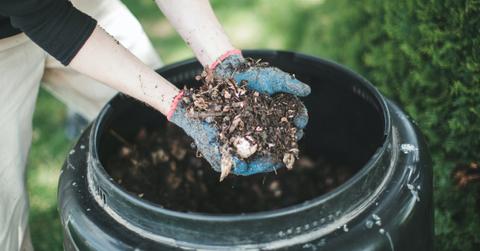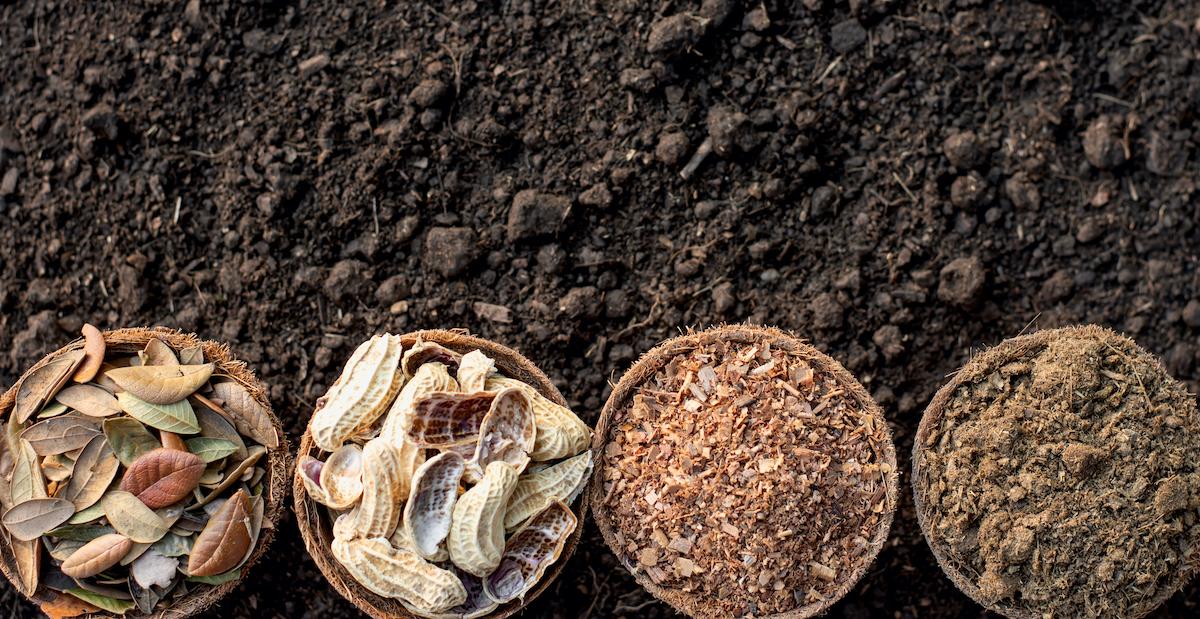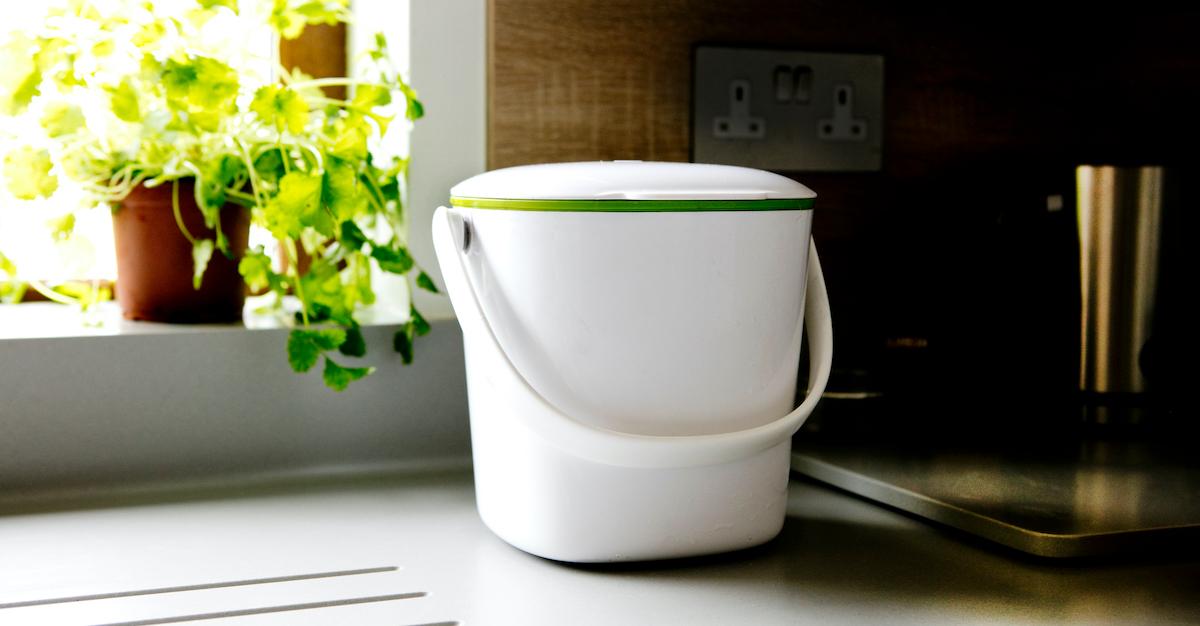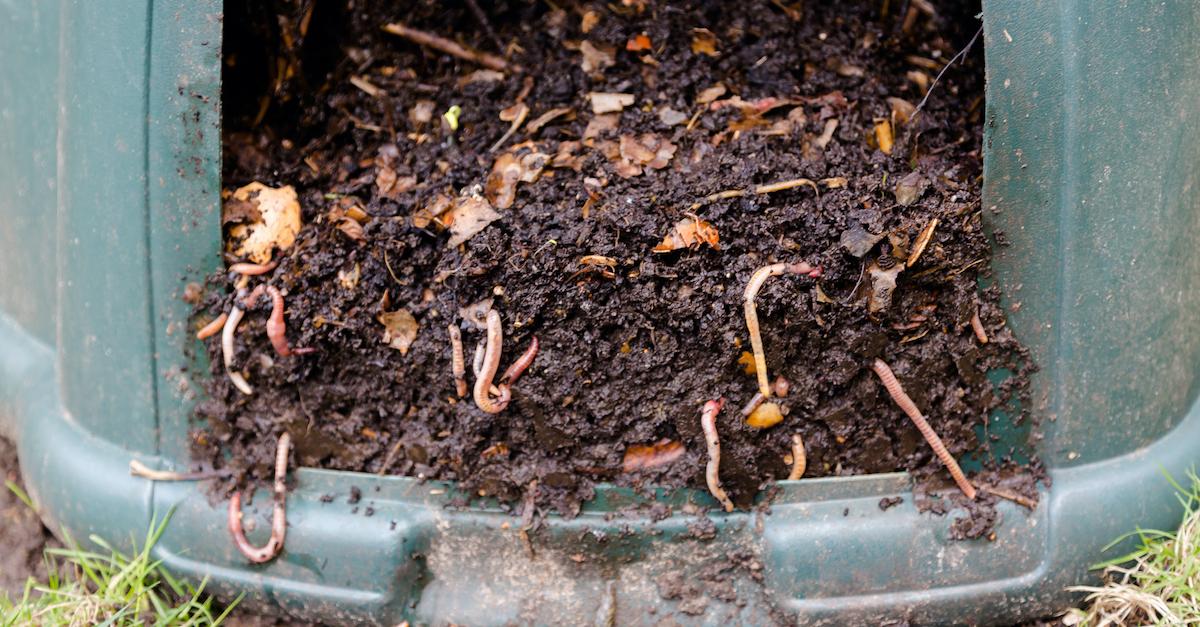Here's the Breakdown of What It's Like to Compost in the Wintertime
Updated Oct. 29 2020, 5:02 p.m. ET

There are endless benefits to composting — not only is it a sustainable means for discarding waste, but it also provides for an incredible fertilizer, if you happen to own a garden. But since the process of composting involves breaking down natural food waste outdoors (such as banana peels, potato skins, or apple cores), can your compost effectively breakdown in cold weather?
There's certainly no denying that the composting process is greatly changed by cold winter weather — keep reading for more regarding what happens to your beloved compost heap when the temperatures start to drop.

Here's the scoop on composting in the winter:
Heat and sunlight keep bio-organisms and bacteria active and alive, according to Planet Natural, and their wellbeing is imperative, so they can effectively break down whatever you toss into your compost pile. Winter's shorter days and chillier conditions can freeze the breakdown process within your compost heap; however, you don't need to completely stop composting during the winter.
According to Epic Gardening, winter's freeze-thaw cycles are actually advantageous for your compost pile's breakdown process, which means your waste will decompose faster at the start of spring. There are a few ways to prepare for winter, though, that will help your compost keep alive and thrive throughout the chilliest season of the year.

Winterize your compost with additional weatherized protection.
If you keep your compost in a bin outside, put a lid on it. According to Epic Gardener, too much water can hinder your compost's ability to thrive, so adding a lid or roof will protect it from snow, ice, or rain. Alternatively, if your compost is a heap or pile, it's generally advised that you drape a tarp over it, for additional protection and to trap some extra heat.
Another way to protect your compost from the frosty winter weather is by bringing it inside, if it's in a bucket. Your compost will be just fine in the carport or garage, and it will have a little extra protection while braving the winter weather. If you have a compost heap, though, you can also try building a protective structure around it instead.

Be mindful of what you add to the heap, and consider making it bigger before the winter comes.
During the summer months, you most likely feel comfortable throwing any piece of natural waste into the compost heap, but during the winter, it's good to be more selective. Since the breakdown rate is much slower when it's chilly, scraps often attract rodents and pests. According to Busch Systems, you'll want to opt for softer items like peelings as opposed to rinds or shells, and layer greens (such as kitchen scraps or garden waste) with browns (like dead leaves, straw, or newspaper).
Making your compost bigger before the winter weather arrives can also be advantageous. The bigger the compost heap, the more heat it traps inside, making it more likely to survive the cold temps. Add to it frequently and in mass quantities, to trap as much heat as possible.

Winter weather definitely isn't prime composting weather, as it thrives most in sunlight, but we take solace in knowing you can still keep your beloved heap alive when December rolls around. It'd be a shame to have to start all over again.